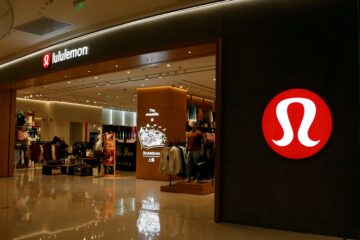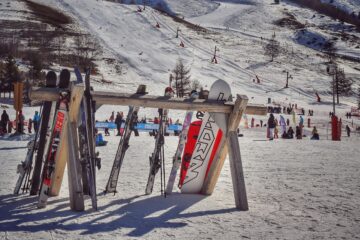AGL Market Cap: 1.6 bn
WDF Market Cap: 2.0 bn
On the 1st of October 2013, Autogrill S.p.A. completed the spin-off of Travel Retail & Duty Free (TR&DF) that is now controlled by World Duty Free S.p.A. WDF started to trade at a price of €7.13 with AGL trading at €6.05, with a total value for shareholders of €13.18, higher than the AGL’s previous day share price of €12.9.
The transaction structure is relatively straightforward:
World Duty Free S.p.A., new parent company of the TR&DF group, is the beneficiary of the demerged TR&DF activities. Autogrill S.p.A. shareholders receive one share in WDF S.p.A for each share held in Autogrill S.p.A. and WDF S.p.A.’s share structure maintains the same structure as Autogrill S.p.A’s.
In a second stage CBR Retail, 100% owned by HMSHost, which also comprehends “US Retail” (with $244M of sales and $23M of EBITDA), will be sold to WDF for $118-123M in cash.
Moreover, further bank facilities, for a total commitment of €1.250M, will be negotiated in order to repay outstanding bank loans and intercompany loans to finance the acquisition of US Retail, ordinary activities and expenses related to the demerger.
The demerger saw a positive reaction from the market. Since the 1st of February 2013, when AGL announced that it would start a study on the possibility of a spin-off of its TR&DF business segment, AGL’s price has been increasing from €9.8 (1st February 2013) to €12.9 (30th September 2013). The current combined price of Autogrill S.p.A. and Word Duty Free S.p.A. is around €13.18, meaning a 35% upside from AGL’s previous price.
The transaction will allow the two businesses to realize their full potential with dedicated “stand alone” strategies. Indeed, the F&B and TR&DF are in different stages of their economic cycle: F&B is the cash cow of the group, which has been supporting the group’s geographical, operational and channel diversification mainly through acquisitions, while TR&DF is the business with higher potential growth and operating margins.
AGL has operated mostly in airports (63% of sales) and in motorways (30%). The company started its activity in 1947 in the F&B business, providing food and beverage services for travelers in the Italian motorways, and gradually expanded its scope, entering the TR&DF business in 2005. In the past eight years the Group strategy has been focused on gradually increasing its presence in airports rather than in motorways, since the airport activity can benefit from wealthier traffic and easier product targeting.
In terms of AGL’s total sales, the F&B and the TR&DF accounted respectively for 67% and 33%, while, in terms of operating profit, they both accounted for 50% of the total amount.
The F&B business performance is mainly influenced by two factors: the macroeconomic context and the price of fuel. Regarding the first, the negative trend (-3% GDP growth rate in developed countries in 2009, with a slow gradual recovery) will continue to impact the performance also in the near future. The 2008 financial crisis has caused a global economic downturn: as a consequence, motorway traffic, highly sensitive to consumer spending, has been steadily decreasing ever since. Specifically, traffic growth has reached its historical minimum in Italy (CAGR -7.9%).
The price of fuel has negatively influenced the profitability of the F&B segment in two main ways. First, its increasing volatility has impacted the global consumption level, especially in the U.S., hence discouraging road traffic. Second, the situation has been aggravated in Italy, where the company has 23% of F&B sales, due the lump sum taxes on fuel.
TR&DF geographical focus is mainly in U.K. (47%) and Spain (29%), but the Group is also active in the Middle East, in the Americas and in Asia. The TR&DF industry was worth $46bn globally in 2011, of which AGL accounted for 3%. The brands operating within the industry have demonstrated growth across all product categories, with luxury goods leading the way. The industry is projected to achieve sales of over $60bn by 2015. The main driver of the business is the airport traffic.
Another growth driver is represented by concessions, both in terms of new contracts and renewals. In 2012 AGL was able to confirm all its expiring concession and to increase the number in Spain from 21 to 26. It also renewed the concessions in the strategic airport of Atlanta (the world busiest airport by passenger traffic, 92M in 2011) and Amsterdam. The Group also expanded its reach to new geographies such as Jamaica, Germany and the growing areas of Brazil, Turkey and United Emirates. The new contract in Brazil has a strategic relevance in winning concessions expiring between 2014 and 2016 in the whole country. As a final remark, the Group is currently able to capture emerging market customers through operations and presence in key European hubs, particularly lucrative due to tax factors (VAT-free). However, in the near future it will be increasingly relevant to be physically present in EMs.
As the two sectors are driven by different businesses, the spin-off won’t implicate loss of significant synergies between the two divisions, which also require different capital needs and growth opportunities. Furthermore the transaction could unlock a potential value that the market has not fully recognized yet. In addition a slimmer structure and a higher focus on individual segments would let the company achieve a higher bargaining power in terms of concessions and potential joint ventures with other operators.
The advisors of Autogrill for the transaction were Bank of America Merrill Lynch, Banca IMI, Banco Santander. On specific parts of the transaction Goldman Sachs and Unicredit also advised the company.



0 Comments